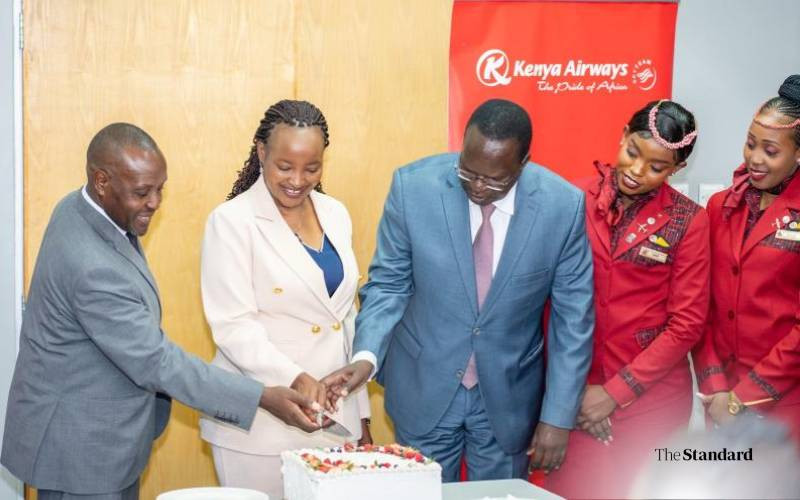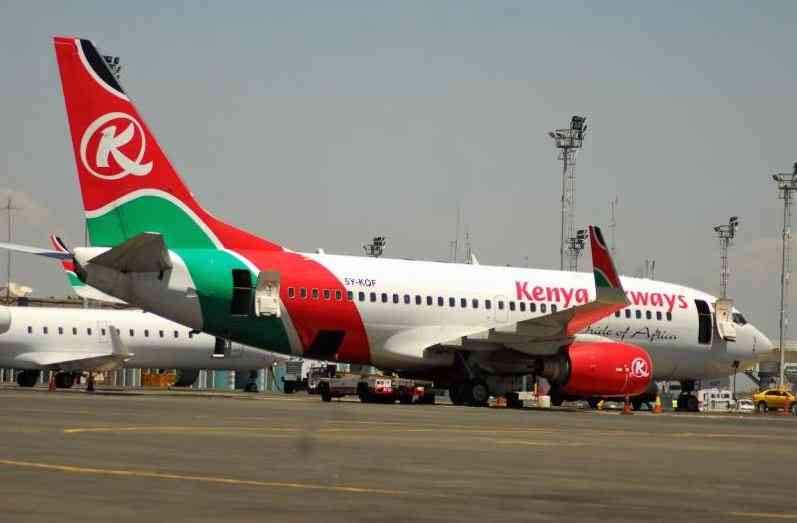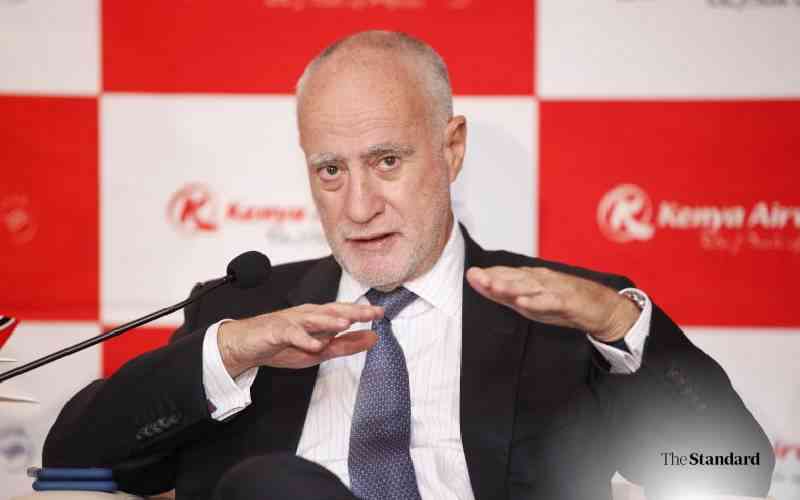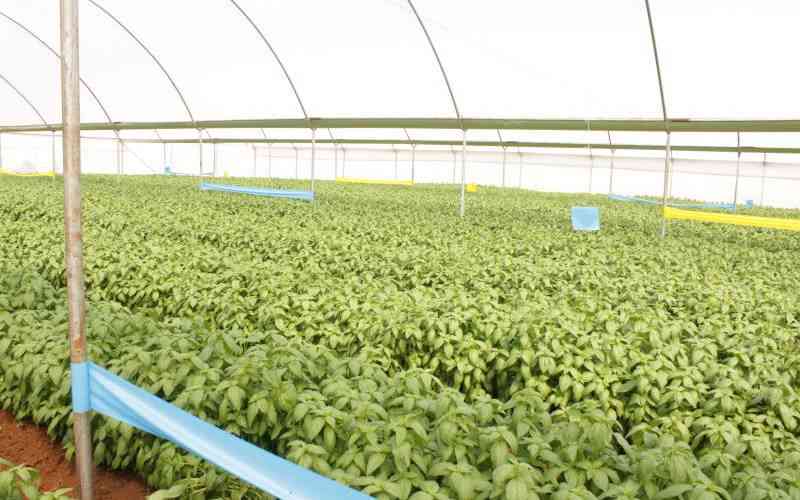
(L) Allan Kilavuka, Kenya Airways CEO, PS Aviation, Teresia Mbaika, John Elungata, Secretary State Department for Environment, during Kenya Airways 2024 Sustainability Report launch. [File, Standard]
National carrier Kenya Airways (KQ) plans to start manufacturing sustainable aviation fuel (SAF) within five years as it aims to embed sustainability in operations and reduce carbon dioxide emissions.
The airline revealed this yesterday when it launched its 2024 Sustainability Report at its Pride Centre in Nairobi.
“We want to be part of production and have entered into a memorandum of understanding with a local producer of SAF by looking at degraded land in Kwale County, a former mining site, to plant trees that will produce feedstock,” said Kenya Airways chief executive Allan Kilavuka.
“We hope that between now and 2030, the trees will have matured. We shall have to come up with a framework of manufacturing capacity not only for sale for export but also for our local consumption.”
He said the airline has also ventured into afforestation and so far they have planted 1.2 million trees with a plan to plant the same every year going forward. Kilavuka said 64 per cent of carbon emissions will come from fuel and therefore, there is a need to address the kerosene issue used in aircraft.




“However, the issue is very difficult to address because SAF is a new and expensive technology, which needs to be designed, developed and used sustainability. A lot of that has been done already and now there is availability of SAF,” said Kilavuka.
“However, there is only two per cent of available supply globally versus the need, thus a severe shortage and as you know the rules of economics, scarcity of supply leads to very high cost.
“The cost of SAF is estimated currently to be around four to five times the cost of traditional jet fuel, which is a big deal because if you have five times the cost of fuelling the aircraft, someone has to pay for it and that is the passenger.”
The CEO said 30 to 35 per cent of their cost is on fuelling and there is an urgent need to address the issue. Global demand for SAF is expected to reach 17 million tonnes per annum by 2030, representing four to five per cent of total jet fuel consumption.
In May 2023, KQ became the first African airline to use SAF provided by Eni for a long-haul flight from Jomo Kenyatta International Airport to Schiphol Airport in Amsterdam.
Kilavuka said already the airline has also ensured that 12 ground service equipment are electric to reduce CO2.
Last year, the CEO said they set up a plant to convert waste plastic into pyrodiesel, which is a lot cleaner than fossil diesel.
By 2030, the aviation industry is aiming for significant adoption of SAF to reduce CO2, with various targets and initiatives in place.
Stay informed. Subscribe to our newsletter
Direct routes
Globally, there’s a push for a five per cent emissions reduction through SAF use by 2030.
The KQ boss said they are also trying to reduce the cost of fuel through routing, with emphasis on direct routes in collaboration with the African Airlines Association to fly more efficiently with fewer nautical miles.
He said the company is also entrenching sustainability in women pilots as per the International Air Transport Association's goal to increase the representation by 10 per cent by the end of 2025.
“As we talk right now, eight per cent of our pilots are women. That looks small, but I can assure you there are very few airlines globally which have more than eight per cent of female pilots, the majority of them are at an average of four to five per cent,” he said.
Principal Secretary for Environment and Climate Change Festus Ng’eno lauded KQ’s contribution to the country’s target to reduce CO2 emissions by 32 per cent by 2030 through the SAF project and a 1.2 million trees annual growing target, ban on single-use plastics, and electric ground service operations.
“I am proud to note that KQ is contributing to this through fleet modernisation, operational efficiencies, and especially the development of the SAF project. “The project developed through local partners exemplifies the public-private partnership that we need to drive green growth,” said Dr Ng’eno.
He said this in a speech read on his behalf by the Secretary of Administration in the State Department for John Elungata.
Teresia Mbaika, Principal Secretary for Aviation and Aerospace Development, applauded KQ for entrenching women in top leadership and promised to be the champion in enforcing the Fly Kenyan Policy (“Fly KNY Policy”).
“I will ensure we implement it, but we also need to be careful that we do not inconvenience the officials. We also need to look at expanding the capacity of KQ to fly to many destinations and its infrastructure, since our airline is not that big compared to others on the continent,” she said.